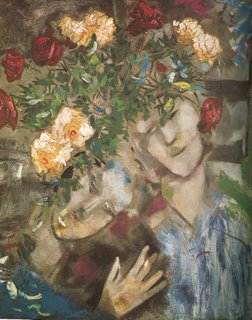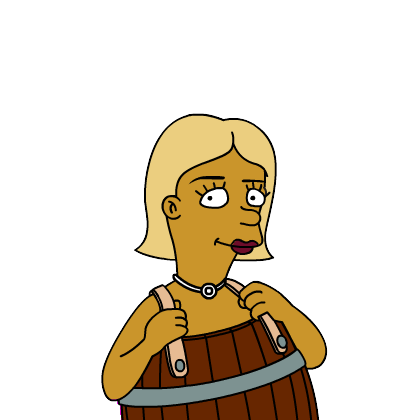
I woke up this morning thinking of an old Asian fable I had read years ago.
A woman hates her mother-in-law. She can’t stand living with her anymore and goes to the local wise woman asking for a potion to kill her. The wise woman thinks for a moment and then gives her an ointment telling her to massage it into her mother-in-law every day, and in three months time she will be dead. Ecstatic, the woman returns home and does exactly what the wise woman tells her. Four weeks later, she returns to the wise woman sobbing and begging for the antidote. She doesn’t want her mother-in-law to die. The wise woman tells her she already has the antidote; the potion was harmless. Through touch and massage every day, the woman had grown to know and love her mother-in-law, and in return, she had grown to be grateful to her daughter-in-law. You can’t touch someone and continue to hate them.

I’ve worked in childcare for many years. It wasn’t until I worked with infants that I was astounded by the vast differences of personality and behaviors – even at two weeks old.
When I was living in New York, I worked as a nanny for a family from Thailand. They had recently moved to the United States and were working as accountants. They were saving up to buy a house, but until then they lived in a tiny, dark, walk-up apartment by the railroad tracks. It wasn’t the most pleasant place to be during a typical New York winter. Their son Jason was three months old. The parents had lots of requests, but one of them was to give Jason a daily massage. In the afternoon, I was to lay him out on the floor, play relaxing music for him and massage him with oils from head to foot. I thought it odd, but began to enjoy our daily ritual. I also became very close with Jason (or Jason-san as I called him). Jason-san was nothing but a pure delight as a baby. He constantly smiled, wasn’t fussy, always affectionate. When he yawned, I’d lay him down and he would relax quietly in his crib before drifting asleep. Likewise, he never woke up screaming. More often than not, I’d have to check on him and he would usually be awake in his crib just hanging out. He’d never scream or cry, he would just make noises to let me know he was up. I could sit him in his high chair with a pretzel for over an hour while I practiced my French homework on him. He was the easiest baby I ever (and have ever) seen. I can’t help but credit the massage to his disposition, and hope to one day try this theory on my own kids.

Consider this:
• Touch is the first sense to develop inside the womb.
• A fetus’s skin can sense touch at just nine weeks.
• Until the 1930s, the death rate for babies under one-year old in American foundling hospitals was nearly 100%. They died from “marasmus” which is Greek for wasting away. Then a Dr. Talbot visited a children’s clinic in Germany. There he saw an elderly fat lady shuffling around with babies clinging to her. The doctors there told Talbot that when the babies didn’t improve from their medical efforts, they handed them over to Old Ana who simply carried them around with her. The babies always thrived. Talbot returned to the U.S. and introduced the concept of mothering into foundling institutions. The infant rate decreased.
• In Mexico, Zinacanteco shamans hug patients to help them recover the lost part of the soul, “to get in touch with it.”
• In Northwestern Nepal, an entire community will take turns regularly massaging an expectant mother. They do this because they believe an anxious mother is bad health of the village as a whole.
• A1950s study revealed that touch is a more important factor to a baby primate in forming attachment. Monkeys were taken away from their mothers and given two wire-frame surrogate mothers. One “mother” provided milk, the other was covered in blankets and provided touch. The monkeys bonded with the touching mother, not the feeding mother.
• Dolores Krieger pioneered Therapeutic Touch. This is a development of laying hands on people to direct healing energy. Tests have shown that is has a positive effect on hemoglobin (which deliver oxygen to tissues) and on brain waves.
• Greeks prescribed massage as a cure for melancholia (depression), asthma, digestive problems and sterility.
• In Nigeria, the moment a Burno baby is born, it’s held by all the birth attendants, who have heated their hands over hot coals. Much better than a slap on the ass.



Touch revives our senses. The nurturing aspects of touch are as important a part of the physical therapy aspect of working the muscles and energizing circulation. It is a powerful tool, which helps us discover non-sexual bodily intimacy. Touch is way to calm. It’s acknowledgement of the inherent need of interconnection.

Now, I am not talking about the grope on the Subway, but sometimes a hand on top of another is the greatest form of communication.

Kiss your child
Pat your friend
Hug your partner


P.S. I mistakenly picked up the book “The Tao of Health, Sex & Longevity,” by Daniel Reid thinking it had the fable in it. I’m now rereading it for the third (fourth?) time in fifteen years. Excellent book. I highly recommend it.


0 Comments:
Post a Comment